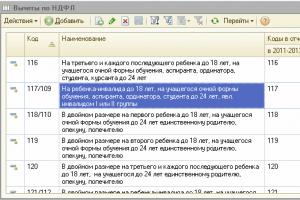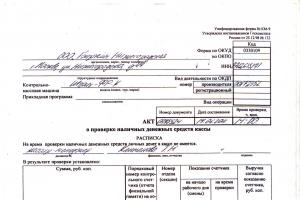- This is a normal physiological process. In healthy people, they leave the body approximately 15 times a day and without a stinking odor. If present, it may indicate a serious pathology.
Each person's gastrointestinal tract contains about 200 ml of gases. They gradually accumulate, and during the day they come out in the form of farts (flatulence) through the intestines. Gases are formed mainly due to the ingestion of air. This happens during a meal or conversation.
Certain foods can also trigger it. That part of it that remains undigested first decomposes and then rots. A certain proportion of complex carbohydrates is not digested and with an abundance of pectin, plant fibers, and cellulose in the intestines, the microflora is disrupted.
As a result, it arises. The passage of gases with a foul-smelling “aroma” is often accompanied by pain. Other symptoms that cause discomfort may also appear.
Why do gases have a foul "aroma"?
Hydrogen sulfide gas, ammonia and aromatic carbohydrates (skatole, indole, mercaptan) give them an unpleasant stinking odor. Foul gases are formed due to excessive consumption of foods rich in proteins and sulfur.
Mercaptan is produced after the breakdown of methionine. Constant gases in the intestines with a foul odor also appear as a result of a number of diseases, mainly due to disruption of the gastrointestinal tract.
The intensity of the “aroma” depends on the percentage of certain substances in the bubbles. They are produced by a number of bacteria. Therefore, a number of foods are excluded from the diet:

The stench is mainly due to hydrogen sulfide, which has the smell of rotten eggs, methanethiol - rotten cabbage. A person’s nose can smell how hydrogen sulfide stinks even in small concentrations, so the sense of smell detects even a small or silent release of gases.
Diseases that cause odor
Foul flatulence, or why gases smell so bad, occurs due to various reasons. Including due to a number of diseases, which include intolerance to dairy products. Other pathologies that cause foul-smelling gases:
- paresis;
- dysbacteriosis;
- proctitis;
- Crohn's disease;
- worms (helminthiasis);
- intestinal obstruction;
- peptic ulcer;
- intestinal infections;
- constant stress;
- irritable bowel syndrome;
- gastritis;
- pancreatitis;
- peritonitis;
- colitis;
- gastric atony;
- neuroses;
- duodenitis;
- gastroptosis.
You might be interested in watching a video on this topic:
According to statistics, in adults, foul-smelling flatulence due to illness appears in 40 percent of cases with pathologies of the digestive tract. Moreover, an excess of gases does not depend on age. For example, in infants, flatulence appears due to an immature digestive system. In older people, the intestines become elongated (age-related changes).
Attention! If the processes of formation and removal of excess gases fail, they can accumulate in the gastrointestinal tract in the form of foam. This reduces the activity of some important digestive enzymes.
Another pathology is malabsorption in an adult, when the processes of natural absorption of various substances from foods are disrupted.
What to do if foul gas forms
When gas with an odor appears, you need to immediately reconsider your diet. Diet is always the basis for the treatment of flatulence and any gastrointestinal diseases. A properly designed menu helps improve digestion and reduce the release of smelly gases. It is also a good idea to seek advice from a gastroenterologist. If frequent gases with an unpleasant odor appear, an examination is prescribed. Can be assigned:
- colonoscopy;
- blood biochemistry;
- Ultrasound of the peritoneum;
- general blood, urine and stool tests;
- coprogram;
- fibroesophagogastroduodenoscopy.
If the examination reveals pathologies, then treatment will initially be aimed at eliminating the disease. In other cases, it is enough to simply reconsider your diet. 
Drug therapy
In some cases, when there is strong gas production with an unpleasant odor, drug therapy is necessary. It includes carminatives, painkillers and anti-inflammatory drugs. Agents that restore microflora are also prescribed. If following a diet does not help, medications that reduce flatulence are indicated:
| Types of medications | Titles | Action |
|---|---|---|
| Antispasmodics | "Spazmol", "No-Shpa" | Eliminate pain, discomfort, relieve spasms. |
| Defoamers | "Infacol", "Espumizan", "Bobotik", "Sab Simplex" | They provoke the rupture of bubbles and the release of gases. |
| Probiotics | "Enterol", "Acipol", "Linex", "Bifikol". | Restores the intestinal microflora, filling it with beneficial microorganisms. |
| Sorbents | “Enterosgel”, “Smecta”, “Polyphepan”, activated carbon. | Absorbs toxins and harmful substances and remove them naturally. |
Some medications (more often used for children) are available in the form of suspensions or absorbable tablets. For example, "Motilium", "Motilak".
Most cases of excess flatulence are caused by the food we consume. Intestinal gas is formed during the digestion process in the gastrointestinal tract.
Gases must come out either through the mouth, by belching, or from the anus, by passing gas, i.e. farting. In this case, the gas in the intestines actually has no odor. The pungent odor comes from bacteria that naturally live in the gastrointestinal tract.
Many people do not know that the gastrointestinal tract is home to billions of living bacteria. The body's gastrointestinal tract is something of a battlefield where good and bad bacteria fight each other for space in the intestines.
The average person passes gas or burps about 14 times a day. It is considered excessive if a person burps or farts more than 15 times a day.
If you feel that you fall into this category, then you should take a close look at your life and try to figure out what is causing the extra gas.
Once you have identified the source of the extra flatulence, you can take steps to change your lifestyle and solve the problem. And, I hope you prevent him from returning.
There must be gas in the intestines. If, say, you ate 200 ml of food, then after 10 minutes your intestines should release 200 ml of gas. This is a rule that you need to know and not break so as not to spoil your health.
What to do if you want to fart?
Farting is normal! This is a natural human need and some believe it is a sign of a healthy digestive tract.
Holding gases is harmful.
Composition of intestinal gases
On average, one release of gaseous waste products from the intestines contains:
59% nitrogen
21% hydrogen
9% carbon dioxide
7% methane
4% oxygen
Components that create bad smell make up less than 1 percent of the composition of intestinal gases.
The temperature of the gases at the moment of “shelling” is +37Co.
The rate of release of gaseous waste products from the intestines is more than three meters per second.
A person produces between 500 ml and 1500 ml of intestinal gases per day.
Women fart as much as men, but this is a controversial issue.
Products that promote gas formation
Is it normal to fart?

What is natural is not ugly!
You have to fart, because the body gets rid of unnecessary gases. Of course, you shouldn't do this on a crowded bus or a packed elevator. But if there are free ventilated areas within the radius of your space, then let your gases occupy this territory for the comfort of your body.
If you produce a lot of gas, this is a signal that your intestines are not functioning properly and it wouldn’t hurt to consult a doctor. Let us repeat once again that normally the gastrointestinal tract contains on average about 200 ml of gas. A healthy person emits 0.5-1.5 liters of gases every day in 10-20 farts.
Foul smell of gases
Flatulence foul odor. The gas that creates the foul odor is hydrogen sulfide. The more you eat foods that produce gas or cause bloating, the more you fart. Often, some people fart smelly because they produce gases with an unpleasant odor. This problem often ruins their lives.
They worry much more about the unpleasant odor of a fart than about its quantity, since horrible smell causes a lot of inconvenience and irritation to other people. Everyone wants to get rid of this problem and find out the reason why smelly gases are formed.
People think a lot about this problem and cannot concentrate on the things they are doing. Such people try to avoid public places and seclude themselves, which leads to stress .
Farting smelly can be a major source of embarrassment, not only for the person who farts, but also for the people around them. Fart with smell can lead to low self-esteem and social isolation.
They don't know what to do and are emotionally depressed because they think their problem, worse than their disability, is that they affect others with their foul odor.
A stinky smell indicates that something is medically wrong.
Smelly fart indicates digestive problems.
This happens for two reasons. First, if gas remains in the intestines for a long period of time, bacteria begin to add foul-smelling sulfates to it.
The second thing that makes farts smelly is eating foods with high content sulfur.
The digestive process produces gas, so farting is a must.
Check out 8 Foods That Produce Gas
What else is a symptom of the formation of gases with an odor?
Gastrointestinal tract infections. There are many bacteria and viruses that can cause infections in the lining of the gastrointestinal tract. Some of them may involve traveling to different parts of the world.
The infection is usually accompanied by diarrhea, fever and abdominal pain. If you suspect you may have an infection, contact your doctor to determine appropriate treatment.
How to fart without making noise?
Take your time. If you have to fart and you know it will be loud, you need to proceed carefully unless you want everyone to hear it. One way is to squeeze your buttocks, then lift one of them slightly and release gas. This way you can fart two or three times, but the sound will be much quieter than one time.
You can use this method to fart while sitting and standing. If you're sitting, just pretend you're leaning over a table or something in front of you while you lift one buttock for a fart.
If you're standing, simply lean to one side to lift the other - you can pretend to reach for your bag as you do this.
Another way to fart without making noise is to hold it. Although it will be difficult, you can try squeezing your buttocks until the urge to fart goes away. There is a chance that it will return, but at a more opportune moment, for example, when you are alone
WARNING: The information contained on this blog is for educational and informational purposes only and should not be used as a substitute for diagnosis or treatment prescribed by a physician.
In women, increased gas production may be present constantly or appear on certain days of the month. The reasons for this phenomenon are varied - from PMS to poor nutrition and stomach diseases.
Increased gas formation - normal and pathological
Flatulence- this is the name given to severe gas formation in children and adults - a very common phenomenon: it regularly causes trouble for every tenth inhabitant of the planet. In general, the production of gases in the intestines is a natural physiological process. A significant part of them (up to 70%) appears due to the ingestion of air with food; a certain amount is produced by bacteria in the gastrointestinal tract. Intestinal gases are a mixture of oxygen, carbon dioxide, hydrogen, nitrogen and methane.
Normally, a person’s intestines constantly contain approximately 200 ml of gases present. Every day, during and outside of bowel movements, the body excretes about a liter of gases, and a little more is absorbed into the blood. Various diseases and errors in nutrition lead to the accumulation of up to 2-3 liters of gas in the stomach.

The main forms of flatulence in women are presented in the table.
| Form of increased gas formation | Description |
| Nutritional | Associated with the abuse of certain foods, for the digestion of which the body produces more gases |
| Digestive | Caused by impaired digestion and absorption of food |
| Dysbiotic | Depends on poor quality of intestinal microflora |
| Mechanical | Occurs due to mechanical obstructions in the gastrointestinal tract, constipation |
| Dynamic | The reasons lie in intestinal motility disorders |
| Circulatory | Available if the process of gas production and absorption is disrupted |
| High-rise | Appears when atmospheric pressure decreases |
If there is severe gas formation in the intestines, it is important to clarify the causes and treatment as quickly as possible.
Poor nutrition and gastrointestinal pathologies are the causes of flatulence
All factors that provoke increased gas formation and bloating in women can be divided into temporary, periodically affecting, and permanent (most often these are chronic gastrointestinal diseases). Since with each swallow 2-3 ml of air passes into the esophagus, the following reasons can increase the volume of gases:

If a woman eats certain foods, they also provoke excessive gas formation. These include those that contain carbohydrates(lactose, fructose, etc.). Most often, the stomach becomes bloated after consuming legumes, cabbage, apples, kvass, beer, black bread, pumpkin, as well as powdered milk, ice cream, juices, and dietary products with sorbitol.
Of the cereals, only rice does not cause such problems, and all other grains contain a lot of starch and dietary fiber, and therefore contribute to the appearance of gases.
Very often, the causes and treatment of increased gas formation in women relate to chronic diseases digestive tract. They may depend on disturbances in the production of enzymes or bile, disruption of motor function and intestinal microbiocenosis. In most cases, gas formation in women is caused by dysbacteriosis or constipation.
Other possible causes of pathology:

Other causes of flatulence in women
Diseases nervous system can also affect the formation of excess gases. These include brain diseases, neoplasms, spinal cord injuries and even advanced stages of lumbar osteochondrosis.

In women, severe or prolonged stress, mental trauma or depression can also provoke painful symptoms.
Vascular diseases (vasculitis, thrombosis, varicose veins of the peritoneum) are another possible reason increased gas formation.
Oddly enough, gynecological problems also often provoke flatulence in women. Bloating and abdominal pain accompany thrush, endometriosis, fibroids, ovarian cyst. During menopause, due to hormonal changes, the stomach swells in the evening and at night. With PMS (premenstrual syndrome), as estrogen levels increase, gas formation also becomes higher.
Flatulence and pregnancy
Typically, such problems begin to torment a woman in the second or third trimester. The uterus, which has grown in size, puts a lot of pressure on the intestines, so gas separation (flatulence) increases.

Also, during pregnancy, hormonal levels change dramatically, which causes a decrease in intestinal motility. Gases are not pushed “out”, they accumulate in the stomach and bloat it. Flatulence and constipation are a frequent companion of pregnancy.
In the first trimester, activation of progesterone production causes rotting and fermentation in the intestines, bacteria begin to produce a larger volume of gases.
Seeing a doctor if you experience flatulence is mandatory for pregnant women. Despite the natural causes of this problem, exacerbation of chronic diseases is possible ( gastritis, colitis), which increase gas formation. It is necessary to prescribe suitable treatment that would not harm the baby. In addition, an overly swollen abdomen in the very early stages of pregnancy often occurs due to ectopic attachment of the fetus, so timely diagnosis is very important!
Symptoms of increased gas formation
With flatulence, gases can accumulate in the stomach and are difficult to pass away, so the person suffers from constant pain and belching. The second variant of the pathology is increased passage of gases, when there is almost no pain, but there is seething and transfusion in the abdomen.

The signs by which one can certainly determine the presence of flatulence are as follows:
- elevation of the abdomen above chest, the stomach becomes round, the abdominal wall protrudes (clearly noticeable in thin ladies);
- feeling of abdominal distension, severe discomfort, especially while sitting;
- increased gas production (gases may have an unpleasant odor or be odorless);
- loud sounds in the stomach - rumbling;
- aching pain, periodically alternating with cramping, especially when retaining gases inside;
- decreased appetite, constipation or diarrhea, nausea, belching.
To identify the problem, you need to contact a gastroenterologist: he will prescribe a general blood test, biochemistry, ultrasound internal organs, coprogram, stool analysis for dysbiosis, if necessary - FGS and colonoscopy.
What to do if you have flatulence?
Nutrition plays an important role in eliminating the problem in women. It is necessary to eat in small portions and regularly, at regular intervals. If the portion is large, it provokes rotting of food in the intestines. Snacks, especially junk food and fast food, are prohibited!

You will have to give up foods that cause flatulence. For a while, it is better to reduce the amount of milk, cream, bananas, apples, pears, grapes and dried fruits, as well as spicy vegetables with coarse fiber. There is no need to eat fried foods, fatty foods, spices, excess salt, and do not drink alcohol or soda.
If there is gas in the stomach and farting, what else should you do? Here are important tips:
- chew food well, do not rush;
- do not eat on the go, do not watch TV, do not talk during meals;
- refuse cold and hot food;
- stew, boil, steam food;
- eat sweets and fruits 2 hours after the main meal;
- drink more clean water.
To get rid of the problem you will have to quit smoking. Also, do not overuse chewing gum, so as not to increase the volume of swallowed air.

Drug treatment of a delicate problem
If there are no serious diseases, a woman can easily improve her digestion using the methods described above. But often such measures are not enough, so after diagnosis the doctor prescribes the necessary treatment. It will depend entirely on the diagnosis. For example, for gastritis, medications are recommended for inhibition of hydrochloric acid production, antibiotics (in the presence of Helicobacter pylori bacteria). For helminthiasis, special anthelmintic drugs are prescribed.
Therapy for excess gas formation may include the following:

If the pain from flatulence is severe, you can take painkillers, antispasmodics - No-shpu, Revalgin.
Folk remedies for gases in the intestines
Traditional medicine offers many recipes for unpleasant symptoms in the stomach. It is recommended to brew dill seeds, anise, fennel, dandelion roots, mint leaves. Chamomile tea also helps against gas formation. The norm for brewing herbs is a tablespoon per glass of boiling water, leave for an hour, drink 100 ml three times a day.

You can also take a decoction of licorice for gases in the gastrointestinal tract. Pour 300 ml of boiling water over a teaspoon of roots and cook for 10 minutes. Cool, drink 2 tablespoons four times a day on an empty stomach. Very effective remedy It is prepared as follows against flatulence: boil parsley roots (a tablespoon) in a bathhouse in a glass of water for 15 minutes, cool. Add 5 drops of anise oil and drink in 2 doses – morning and evening. Taken together, all measures will certainly help cope with unpleasant phenomena in women.
5Flatulence itself is not a disease; it is only a symptom indicating a malfunction in the human body. The sensations are quite unpleasant and the list of diseases that cause flatulence is quite large.
A foul odor is a fairly common accompaniment of flatulence. This happens due to the release of carbon dioxide by gases entering the intestines as a product of its decay. Carbohydrates contained in food products are not completely digested and are released when they are broken down in the human stomach.
The human large intestine contains an abundance of plant fibers, pectin and cellulose. In such conditions, intestinal microflora actively develops and complex carbohydrates contribute to the formation of carbon dioxide, methane and organic acids. In this case, the direct supply of nitrogen from the blood is of secondary importance. Nitrogen enters the intestinal tube due to a certain difference in pressure in the blood and intestines. Thus, the onset of flatulence with an unpleasant odor is explained by failures in the breakdown of enzymes of carbohydrates and protein compounds in the small intestine.
Foul flatulence causes
Intestinal dyspepsia manifests itself in the form of flatulence. The digestive organs are not damaged as a result of this functional disorder. Flatulence is characterized by severe distension of the intestines with gases formed in it. In this case, pain, discomfort and the release of gases with an unpleasant odor may occur. The main causes of flatulence are poor nutrition, metabolic and circulatory failures, as well as difficulties in moving food through the intestines.
Three quarters of intestinal gases are products of bacterial activity. They produce enzymes that promote the decomposition of food that enters the intestines. The result is the release of gases. The main part of microorganisms is concentrated in the large intestine; they produce methane, hydrogen sulfide and ammonia. Increased gas formation is promoted by eating certain foods that are poorly digested and therefore ferment in the intestines and decompose in it. In particular, this can be said about beer, black bread and milk. Also, the cause of foul-smelling flatulence may be disturbances in the functioning of the digestive system caused by changes in its bacterial composition (dysbacteriosis). In this case, fermentation in the stomach also increases, accompanied by the release of a large amount of foul-smelling gases.

Foul flatulence treatment
In case of frequent manifestations of foul-smelling flatulence, it is recommended to consult a doctor to avoid the development of a more serious disease. Only after an accurate determination of the causes of the condition can we talk about its treatment. This requires making changes to the patient’s diet and prescribing him a diet that involves excluding cabbage, fresh bread and legumes. It is also necessary to limit the consumption of foods high in starch, in particular potatoes, as well as flour dishes.
Among medical preparations, it is advisable to use drugs that cause adsorption of gases on the surface. These are activated carbon, Smecta and white clay.
When prescribing treatment for flatulence, the choice is determined by the cause that caused it. For example, if it is an enzymatic deficiency, it is necessary to take enzymes; if the cause is dysbacteriosis, restoration of the full intestinal microflora is required. If the patient is in pain, it is necessary to take medications to relieve muscle spasms of the stomach and intestines. These are No-spa and antispasmodic drugs. In the event that the cause of flatulence is mechanical damage integrity of the stomach, treatment requires surgical intervention.
How to get rid of gases? What to do to get rid of gases? Flatulence is an unpleasant rather than fatal disease. But it requires surgical treatment, as it can spoil not only the air, but also life. Especially in cases where gas emissions cannot be controlled. In any case, this is a rather delicate disease that requires a special approach.
Photo gallery: How to get rid of gases?
As doctors say, it is quite normal to emit gas up to 14 times during the day. If this happens more often, there is reason to think and reconsider your lifestyle and diet. This is because they are often the root cause of this problem.
What causes gases?
Gases do not appear in the intestines; they are always there. This is because most foods release carbon dioxide during their breakdown process. The reason for this is the carbohydrates they contain and are not completely absorbed by the body. Let's take apples for example. They contain about 20% carbon dioxide. It is also found in bread and many other foods.
It is worth noting that not every organism affects foods in the same way. Therefore, in order to understand whether a dish is suitable for you or not, you need to try it and monitor your reaction. As a result, you will understand what needs to be excluded.
Why do gases smell like rotten eggs?
There are several types of products that cause not just the release of gases, but a real storm that can drive you crazy, because the smell is simply unbearable. Most often it is caused by legume products, cabbage (white cabbage, cauliflower, broccoli), all types of onions, raisins and prunes. But the leader is the egg yolk, which turns into hydrogen sulfide. It also adds a “special” smell. Only enzymes can cope with this, which means that you will have to visit the pharmacy.

How to get rid of gases?
First of all, you need to analyze your diet and understand what exactly affects it. It may take a long time, but you will understand your body better and be able to take control of it. To alleviate your condition, it is best to exclude from your diet foods that, according to doctors, cause increased gas formation. If it doesn’t help, you can use special drugs, but this is only a temporary solution.

The most effective way is to control and analyze the food you eat. After breakfast or lunch, monitor what happens in your body for an hour or four. To get the most objective conclusion, you should eat separately.
As practice shows, dairy and flour products are usually among the harmful products. This is because adults do not tolerate them well, especially lactose.
So what to do?
- Eliminate foods that cause too much gas in your intestines.
- If these are flour products, replace them with whole grains.
- Don't overeat, as your stomach simply can't handle too much food. It will ferment and there will be many more gases.
- Don't rush while eating. Chew slowly and thoroughly.
- Don't wash down your food.

This is the simplest thing you can do. But if we talk about the most effective, then you should start by changing your habits. We recommend that you consult a doctor who will rule out possible diseases and infections, and also give recommendations regarding the adjustment of your eating habits.
Try not to overdo it medicines. Too much coal or modern sorbents, if taken too often, can harm the body.
3. Beer, kvass, champagne and other carbonated drinks. Very often, flatulence develops in people who drink large quantities of beer, kvass, champagne and other carbonated drinks. All drinks that contain yeast and gas should be excluded from the diet menu for flatulence.
4. Wrong food combination. There is a combination of foods that complicate the digestion process, as a result of which food is retained inside more than it should be and begins to decompose on its own, releasing a large number of smelly gases. For example, soup and White bread, porridge with meat and white bread, potatoes with mushrooms or sausages. Try not to eat porridge, soup and main dishes with bread. Analyze your diet, after eating what food you fart more often and exclude from your diet foods that lead to increased gas formation.
By its physiological essence, gas formation processes occur in the body of every person, most often when swallowing air in the stomach. Yes, such processes are natural for the body, but this does not mean that they are aesthetically pleasing.
And if gas formation and farting occurs quite often and even bothers the patient, then you need to find the cause of this phenomenon and carry out preventive health improvement of the body.
This is an excessive accumulation of gases in the stomach, manifested in the form of bloating, rumbling, discomfort in the abdominal area and even painful sensations. This is also an extremely unpleasant problem that causes disgust in society.
Gas formation can be caused by numerous factors:

- intestinal dysbiosis, in which numerous changes in microflora are observed;
- diseases of the digestive tract, impaired enzyme synthesis, as a result of which food is not completely digested and accumulates in the intestines, where fermentation processes occur;
- increased gas formation is possible due to the accumulation of feces, chronic constipation, tumors, and the accumulation of helminths;
- disturbance of intestinal motility;
- problems with the digestive tract with low blood pressure.
Gas formation can also be caused by eating low-quality food, quickly digesting it, or taking alcoholic drinks in excessive quantities.
To get rid of attacks of gas formation, you need to reconsider your diet. The main problem lies in eating too much heavy food, especially before bed.

What foods should you not overeat:
- Fermented milk products contain large amounts of lactose, which is difficult for most people to digest.
- Carbonated drinks, kvass, beer, champagne, and lemonade can cause flatulence.
- Eating legumes also increases the risk of gas.
- Products with excessive amounts of coarse fiber can aggravate the problem: apples, brown bread, potatoes, cabbage, radishes, peas.
- When eating foods in an incorrect combination, for example, white bread with soup, potatoes with sausages, etc.
Therefore, if flatulence is minor, it is most likely an aesthetic problem for you, then you can correct it yourself by adjusting your diet and eating regimen.
A lack of digestive enzymes can cause increased gas formation. Therefore, the doctor will prescribe medications to improve digestion. Choleretic medications improve intestinal movement and normalize the process of food digestion.
To improve the microflora, prebiotics and probiotics are used, and antispasmodics are prescribed to relieve spasms. Adsorbents remove excess gas, but their long-term use can lead to constipation.

Traditionally used to treat the digestive system medications, most often used are parsley, dill, chamomile, mint, dandelion root, wormwood.
You can make decoctions or infusions from these plants and drink 50-100 ml three times a day until you feel better. To prepare the decoction, place a spoonful of dry herbs in a container and pour a glass of boiling water, soak for 10 minutes in a water bath and cool.
To make a tincture, you need to take 1-2 spoons of the plant collection, pour a glass of boiling water and leave in a cold place for a day, strain and consume warm, after diluting with water.
You can speed up the process of treating flatulence by creating the right diet, including cereal porridges, whole grain bread, baked fruits and vegetables, boiled meat in your menu, adding fennel and cumin to your dishes, which facilitate the process of gases leaving the intestines.
If you have frequent problems with the intestines, which provoke the development of gas formation and farting, you can try to heal the body using folk methods.
Place one tablespoon of carrot seeds in a thermos, add a glass of water and leave overnight, drink half a glass three times a day, and heat in a water bath before use.

Your home medicine cabinet needs to be replenished with almond oil. Every day, apply 6-8 drops of oil to a piece of bread and eat. Within 3-4 days you will feel relief, the intestines will begin to work like a wound-up mechanism, without failures or disturbances.
Drinking mint tea after each meal will have a beneficial effect on the nervous and digestive systems, helping to calm down and relieve irritation. To eliminate flatulence, an infusion of chamomile flowers is suitable, drink 2 tablespoons 4 times a day.
Drug treatment
Espumisan is considered the safest medicine prescribed for increased gas formation; it has no contraindications and is prescribed for elderly people, pregnant and lactating women, and patients with diabetes.
Enzymatic drugs are Mezim and Pancreatin, and antifoam agents include drugs with a strong carminative effect - Dimethicone and Simethicone. An adsorbent such as activated carbon is not recommended for long-term use and has pronounced side effects.
Spoiling the air, making whispers, farting... No matter what we call this process, it doesn’t get any more pleasant. Both ourselves and those around us. The most annoying thing is that nothing can be done. Gases still pass. Why do people fart? Is this normal or not? Is it possible to contain farts?
Why do gases come out?
During normal digestion, gases always accumulate in the intestines of a living creature. They subsequently exit the body through the anus. How do gases enter the intestines?
1) Through the mouth while eating (we swallow air).
We put a piece in our mouth. They chewed it and sent it into the stomach. Swallowed, that is. Add the next portion. Let's chew. And at the same time we breathe. Accordingly, air enters the esophagus. When we swallow chewed food, on the way to the stomach it will move the air that has entered the esophagus ahead of it. He can't go back. The cardiac sphincter, the muscular door between the stomach and esophagus, interferes.
2) During the interaction of digestive juices with each other and with water.
In the oral cavity, food is moistened with saliva, which has an alkaline environment. Once in the stomach, the food bolus is exposed to hydrochloric acid. From there, already sour, it goes to the intestines. All these reactions are accompanied by the release of carbon dioxide.
3) As a result of the activity of bacteria in the colon.
About three hundred species of bacteria live in the large intestine. When they feed, ammonia, carbon dioxide, methane, hydrogen and other elements are released.
Now it’s clear why a person farts? This is the result of the digestion process. Quite normal. A person must fart to rid his body of gastrointestinal gases. On average, humans produce 14-16 farts per day.
The process of peristalsis creates high pressure in the intestinal area. As a result, all its contents move down into the low pressure zone. To the anus. And the worm-like shape of the intestines prevents gas bubbles from rising upward. I think we need to thank nature for the fact that gases exit through the anus.
Abnormal farting
We've learned that farting is normal. But excessive gas in the intestines is bad. In medicine, this condition is called “flatulence.”
The following foods can lead to increased gas formation:
a) any carbonated drinks (add the gases contained in the drinks to the air swallowed with food);
b) poorly digestible, fibrous foods plant origin(in particular, legumes, apples, cabbage, etc.; they enter the colon almost untouched);
What causes a person's blood pressure to drop? The answer to this question can often be found in dietary analysis. So it is with abnormal gas formation and other problems in the body. Many pathologies begin at our table.
Signs of flatulence:
a) bloating and swelling of the abdomen;
b) discomfort in the intestinal area;
c) a large amount of gases;
d) even pain.
Even with neuroses, farts can attack. Is it dangerous to hold them back?
There are two points of view:
1. Nothing bad happens during abstinence. Gastrointestinal gases are natural in nature, so they cannot “poison” a person from the inside.
2. Abstinence will further worsen intestinal discomfort. The accumulation of gases can lead to bloating and pain.
Both opinions are true. Yes, our own gases will not poison us. But if we hold back, we will get bloating. If you are among people, find a secluded place. And fart to your health.
In the case of flatulence, everything is somewhat more complicated. We need to look for the cause of the problem. When the pathology is cured, then the excessive gas formation will go away. If everything is fine with your health, then try to normalize your diet.








